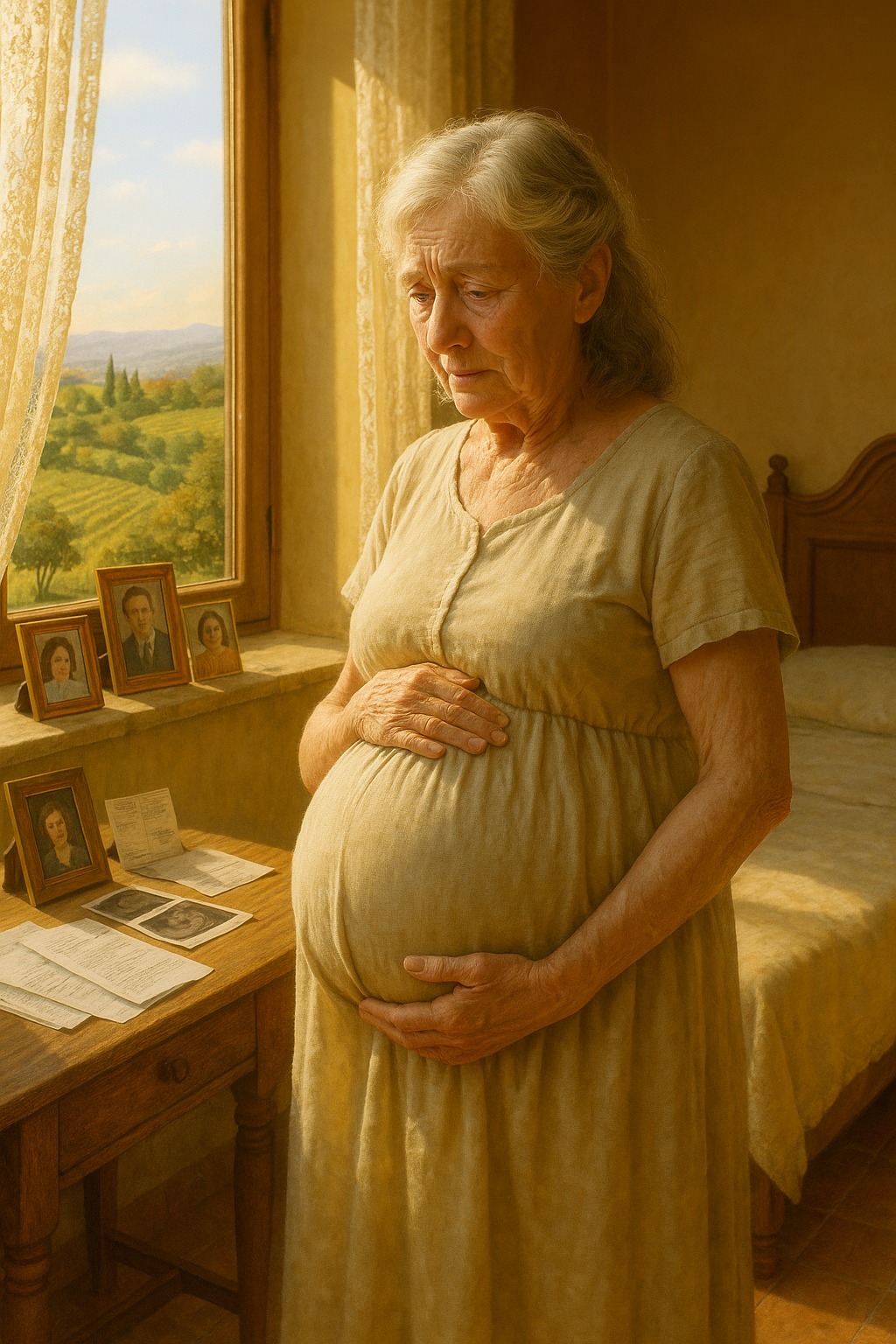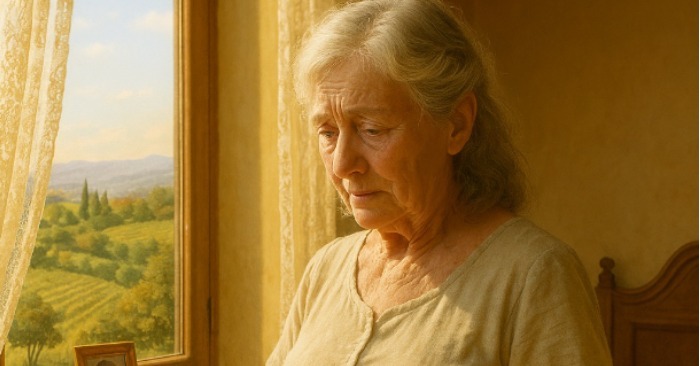Lucia Bennett was born in London in 1955. From childhood, she was an inquisitive, courageous girl who loved books more than anything and dreamed of becoming a doctor. She studied diligently, entered medical school, and later devoted many years to working in clinics and research centers.
She was respected by her colleagues, and her patients called her an “angel in a lab coat.” She saved lives, but she always put off talking about her dream of becoming a mother.
Then things dragged on for decades. First, the wrong time, then the wrong person, then age… And then, she turned 60. She retired and went to live in Italy, in the ancient town of Orvieto, among the hills, vineyards, and silence.
Life became calm, even beautiful. But inside, a feeling of incompleteness remained. Something important hadn’t happened. One day, while watching children playing in the square, Lucia said out loud to herself, “But I never became a mother…”
In 2023, during a trip to India, Lucia happened to be at a scientific conference where she met Dr. Lee Min-Soo, a modest and intelligent scientist from South Korea. He was talking about his project, which was investigating ways to help older women get pregnant. Lucia approached him and they got to talking. That evening, they drank tea and discussed life, loneliness, and hope. Their bond grew stronger with each passing day.
After returning home, Lucia began corresponding with Lee. He invited her to participate in his research. It was a risk—most of the world considered pregnancy at 69 impossible. But inside her, a spark glimmered, something she hadn’t felt for decades.
And then, a few months later—a positive test.
At first, she thought it was a mistake. Even the doctors couldn’t believe it. They checked again and again—yes, she really was pregnant. The pregnancy was difficult and required constant monitoring, but Lucia persevered. “I’m not afraid,” she said, “I’ve been waiting for this my whole life.”
When her story hit the news, the whole world was talking about it. Some called it crazy, others inspiring. Some saw a miracle, others a threat to the established order. But Lucia wasn’t trying to prove anything to anyone. She simply lived her new life—with quiet faith and immense love for her unborn child.
On February 9, 2025, in a cozy clinic near Florence, Lucia gave birth to a boy, Elias. He was born healthy, with strong lungs and clear eyes. The doctors couldn’t hide their surprise: the baby was unusually strong and calm for a newborn.
Lucia held him in her arms, tears streaming down her cheeks. “I don’t know how many years I have left,” she told the nurse. “But right now, I’m the happiest woman in the world.”
However, the real shock was yet to come.
A couple of weeks after the birth, during a routine health checkup, doctors began to notice oddities. Elias barely cried, his temperature was always stable, and his skin healed minor scratches almost instantly. It was as if his body knew how to quickly cope with any problem.
They ran tests. Then more. And more.
The results were strange: his body was recovering several times faster than that of an ordinary person. His blood contained rare proteins, previously found only in centenarians living in isolated corners of the planet.
Scientists from all over the world began to get involved. Lucia was invited to interviews and conferences. Some said her son was a random miracle of nature. Others hinted at the intervention of a higher power. Some even suggested that Elias was the next step in human evolution.
Some media outlets wrote: “The child of the future was born in Italy.” Others: “A boy who doesn’t age?” And still others: “A 70-year-old woman gave birth… and changed science forever.”
But none of this mattered to Lucia.
She looked at her son and thought of only one thing: how to make him happy. She didn’t know why he was so special. She wasn’t looking for fame. She simply dreamed of becoming a mother. And now she’d achieved it.







